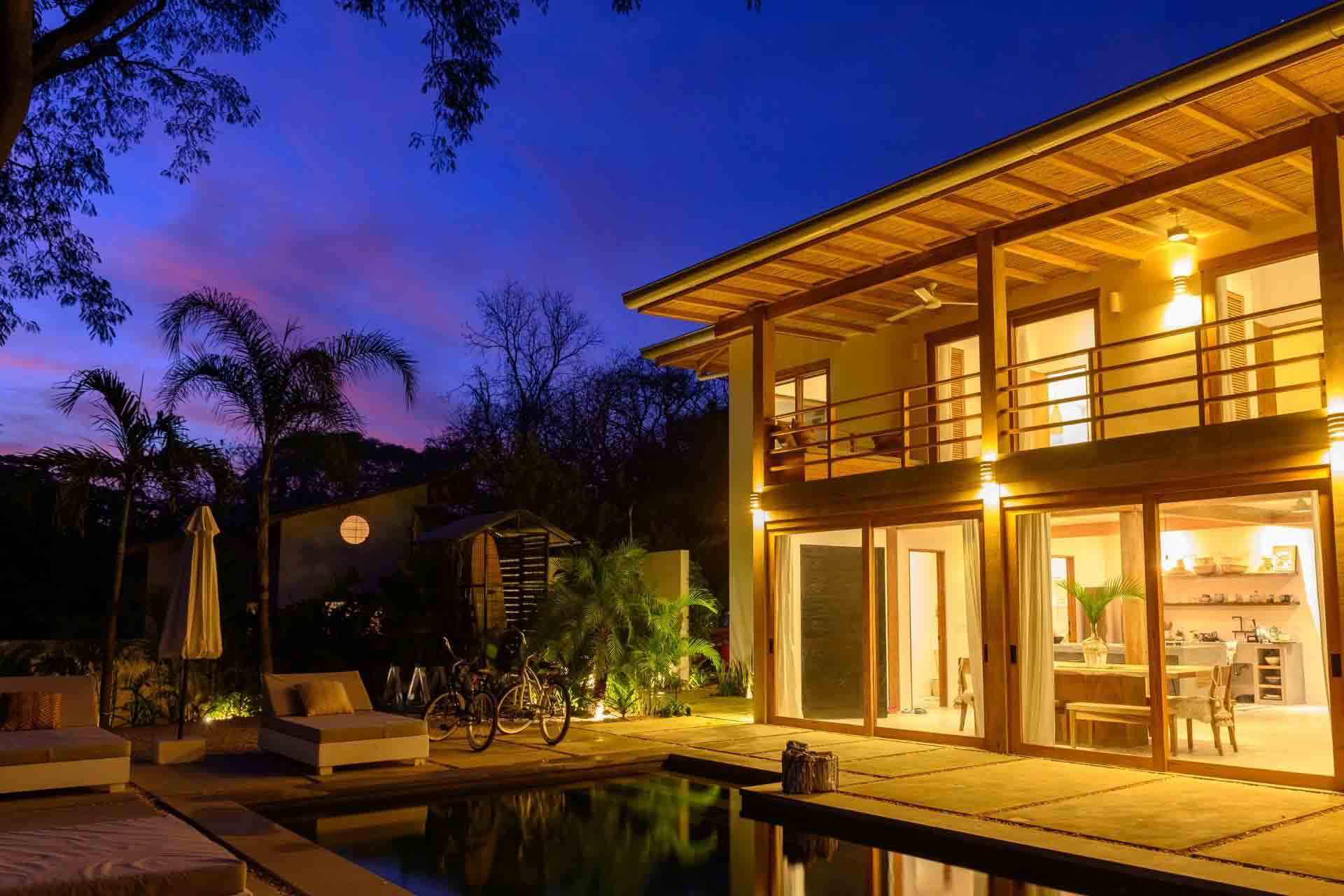Easy Street Capital is proud to be a leading private lender for the Sunshine State! We offer industry leading Hard Money and DSCR Loans for every type of Florida Real Estate Investor. Easy Street Capital is the investment property loan provider for real estate investors of all experience levels and specialties, including popular strategies such as Short Term Rentals, Fixing and Flipping and the BRRRR Method! Our Florida DSCR Loans are perfect rental loans for the long-term real estate investor looking for cash flow. Our Florida Hard Money Loans are ideal for renovators looking to add value through rehabs or ground-up construction!
Check out the rest of this Florida Investment Property Loans page for all the information you need on our loan programs. Check out recently funded rental loans, information on all of our loan programs, FAQs, market analysis and more! To talk to one of our Florida Rental Loan specialists today, click the link below!
Investing in real estate can be an excellent way to build long-term wealth. However, financing investment properties requires a different approach than financing a primary residence. Getting investment property loans in Florida requires working with lenders that understand the unique needs of real estate investors.
In this comprehensive guide, we will cover everything you need to know about getting financing for investment properties in the Sunshine State.
Overview of the Florida Real Estate Investment Market
Florida remains one of the hottest real estate investment markets in the United States Here are some key factors driving investor demand
-
Strong population growth – Florida’s population grew by over 450,000 in 2022 alone. All those new residents need places to live.
-
Retirement destination – With warm weather year-round, Florida attracts retirees from across the country. Nearly 20% of Florida’s population is over 65.
-
Tourism – Florida welcomed a record 139 million visitors in 2022. All those visitors support demand for short-term vacation rentals.
-
Business-friendly tax policies – Florida does not have a personal income tax, making it appealing for individuals and businesses. Property taxes are also lower than the national average.
-
Job growth – Major industries like healthcare, construction, leisure/hospitality, and professional services are creating new jobs and attracting residents.
With strong demand across property types from single-family rentals to vacation rentals, financing remains critical for investors looking to capitalize on Florida real estate opportunities.
Overview of Investment Property Loans
Investment property loans are specifically designed for real estate investors. They differ from primary residence mortgages in a few key ways:
Loan Qualification
Investment property lenders focus more on the property’s potential income rather than the borrower’s income. Key metrics include:
- Debt Service Coverage Ratio (DSCR) – Measures rental income against mortgage payments
- Loan-to-Value Ratio (LTV) – Compares loan amount to appraised property value
Many investment property loans only require proof of sufficient assets to close and credit scores above a set minimum threshold.
Interest Rates and Terms
Investment property loan rates are usually slightly higher than owner-occupied mortgage rates. However, investors can access longer loan terms up to 30 years with fixed or adjustable rates.
Down Payments
Investment property down payments are typically 20-25%. However, some loan programs offer down payments as low as 10% for experienced real estate investors.
Prepayment Penalties
Investment property loans sometimes include prepayment penalties to guarantee the lender income for a set period. However, many programs allow prepayments without penalty.
Entity Ownership
Many lenders allow real estate investors to purchase investment properties through LLCs or other entities to limit personal liability.
Draw Processes
For investors renovating properties, some investment property loans offer simplified draw processes to access funds during construction.
Overview of Common Investment Property Loan Types
There are a few main types of financing used by real estate investors in Florida:
Conventional Investment Property Loans
These loans conform to standards set by Fannie Mae, Freddie Mac and HUD. Qualification considers personal income, assets and credit. Down payments start around 25%. Conventional investment loans work for larger, stable real estate investments but lack flexibility.
Portfolio Investment Property Loans
Offered by private lenders, these loans have less stringent underwriting requirements. Qualification is based more on assets, property metrics and credit scores. Portfolio lenders offer faster closings and programs that fit unique property situations.
Fix-and-Flip Loans
These short-term loans finance the purchase and renovation of distressed properties. Experienced flippers can access up to 90% of purchase and rehab costs. Loans are repaid after the renovated property is sold, usually within 6-12 months.
DSCR/Income Loans
Debt service coverage ratio loans qualify borrowers based on the property’s projected rental income. A DSCR above 1.0 proves the property can cover mortgage payments. Investors like the predictable payments of DSCR loans. Terms can extend up to 30 years.
Construction Loans
These loans finance new construction and major renovation projects. Funds are provided in draws as work is completed. When the project finishes, construction loans convert to permanent financing.
Major Florida Markets for Investment Property Loans
Florida’s major metro areas lead the state in investment property demand. Here’s an overview of key markets:
Miami
- Median Home Price: $575,000
- 1-Year Appreciation: 14.1%
- Median Rent: $2,050/month
Miami attracts investors with its vibrant culture, beaches and steady population growth. Both long-term rentals and Airbnbs produce strong returns.
Tampa
- Median Home Price: $368,000
- 1-Year Appreciation: 16.8%
- Median Rent: $1,850/month
Tampa provides an affordable entry point for single-family rentals. The market saw over 18% rent growth in 2022. Tourism also supports vacation rentals.
Orlando
- Median Home Price: $345,000
- 1-Year Appreciation: 15.4%
- Median Rent: $1,950/month
Orlando’s tourist-driven economy creates strong demand. Investors also like Orlando’s relative affordability and inventory of newer homes.
Jacksonville
- Median Home Price: $275,000
- 1-Year Appreciation: 27.3%
- Median Rent: $1,450/month
Jacksonville attracts investors with historic neighborhoods, downtown revitalization efforts and major industry growth.
Questions to Ask When Choosing an Investment Property Lender
The lender you choose can make or break your success as a real estate investor. Here are key questions to ask:
-
Do they have experience with investment properties? Look for a lender that specializes in serving real estate investors.
-
What property types do they finance? Make sure they work with your preferred investment strategy whether it be vacation rentals, new construction, multi-family properties, etc.
-
What are their rates and terms? Compare interest rates, loan terms, prepayment penalties, points/fees and loan-to-value limits.
-
How long is their approval process? Opt for a streamlined underwriting process to close quickly, especially on competitive properties.
-
Do they allow alternative qualification methods? Seek lenders that offer DSCR loans, bank statement loans and alternative income verification.
-
Can I take title under an entity? Work with a lender that allows LLCs or corporations as the borrower.
-
Do they have a construction loan draw process? Look for structured draw processes if doing heavy renovations.
-
What are their customer service ratings? Read reviews and talk to past clients to gauge responsiveness.
Taking the time to find the right lender for your business objectives can make all the difference in your success as a Florida real estate investor.
Leading Florida Investment Property Lenders
If you’re looking for an investment property loan in Florida, consider these top-rated lenders:
Visio Lending
Visio Lending is a nationwide lender that offers both DSCR/income loans and vacation rental loans in Florida. Their rental loan program finances properties leased on a long-term basis. Vacation rental loans work for properties listed on Airbnb and VRBO. Both products come with 30-year fixed rate options and 80% LTVs. www.visiolending.com
Lima One Capital
This private lender is a leader in fix-and-flip loans across Florida. They offer up to 90% LTV along with fast approvals and closings. Lima One provides permanent DSCR financing to fix-and-flip investors looking to hold properties long-term. www.limaone.com
Sprout Mortgage
Sprout Mortgage offers both short-term fix-and-flip loans and permanent commercial mortgages for Florida investment properties. Their rental loan program finances portfolios of 1-4 unit investment properties. For experienced sponsors, Sprout provides new development and construction loans. www.sproutmortgage.com
Meridian Capital Group
From small residential rentals to large apartment complexes, Meridian Capital finances it all. They arrange both bridge inventory loans for fix-and-flip investors and permanent commercial mortgages. Meridian offers programs to finance ground-up construction projects. www.meridiancapital.com
Stratton Loans
Stratton Loans caters to real estate investors across Florida. Their rental portfolio product offers financing for 1-4 unit residential investment properties. Stratton also offers bridge loans for fix-and-flips as well as new construction/rehab loans. [www.strattonlo

Recommended Partners – Florida


Investment Property Loans Resources
Florida real estate investors use hard money primarily for speed, higher leverage, and greater flexibility. Borrowers use Easy Street Capital for the reasons mentioned previously but also because of our relationship focus and reliability – capital you can count on!
Easy Street Capital prides itself on reliability. Our Florida borrowers know that the terms we issue up front are the same terms at funding. Easy Street Capital will review your application and provide you with an EasyFix loan term sheet within 24 hours. No surprises! No junk fees! Easy Street Capital is truly an asset based lender.
Easy Street Capitals EasyFix program requires a minimum credit score of 600.
Florida interest rates for hard money loans range from 9.9%-11.9%, 1.5-3 points, and a $1495 document fee. Please inquire about custom terms for experienced borrowers.
This will vary based on the particular loan, but typically the borrower will have to put in a down payment of at least 10% for a fix and flip loan in Florida.
Yes – our loans can fund the purchase and renovation costs for properties in Florida.
Typically we do not have any prepayment penalties on Fix and Flip loans in Florida.
Easy Street Capital has full discretion which allows us to fund your Florida Fix and Flip loan in as little as 48 hours if all parties are prepared to close.
Investment Property Loans You’ll Wish You Knew About Sooner
FAQ
How much do you have to put down on an investment property in Florida?
What do you need for an investment property loan in Florida?
Is it harder to get a loan for an investment property?
Can I put less than 20% down on an investment property?
